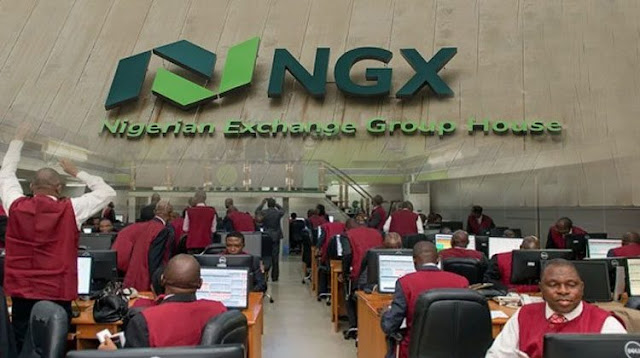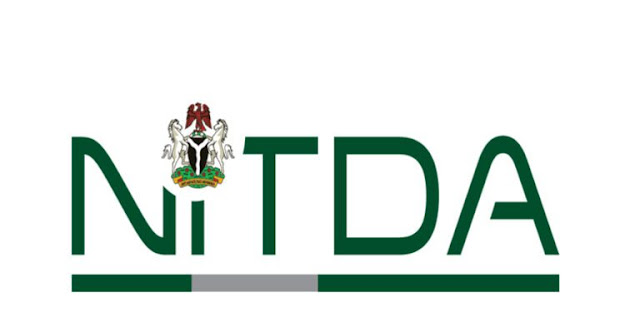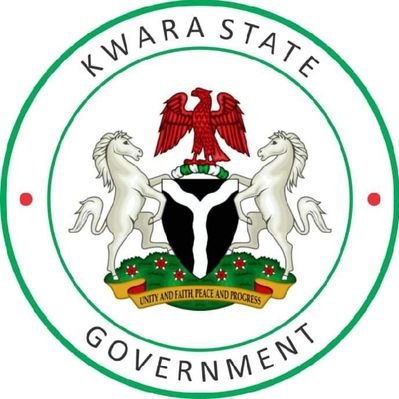LAGOS, Nigeria – August 25, 2025 – Investors on the Nigerian Exchange Limited (NGX) traded a total of 4.773 billion shares valued at N107.426 billion across 152,965 deals during the week ending August 22, 2025, according to the exchange’s weekly market report. While the total value of trades increased by 7.50% compared to the previous week’s N99.936 billion, the volume of shares traded declined significantly from 8.564 billion, reflecting a cautious market sentiment amid economic challenges. The Financial Services Industry continued to dominate activity, with stocks like Universal Insurance Plc, Zenith Bank Plc, and FCMB Group Plc leading turnover. However, the NGX All-Share Index fell by 2.51% to 141,004.14 points, and market capitalization settled at N89.209 trillion, signaling a bearish market driven by macroeconomic pressures. This report provides a detailed analysis of the week’s trading activities, sectoral performance, top gainers and losers, and the broader economic context shaping Nigeria’s capital market.
Market Performance: A Mixed Picture
The NGX’s weekly market report for August 18–22, 2025, paints a mixed picture of investor activity. The total of 4.773 billion shares traded across 152,965 deals represents a 44.27% decline in volume from the previous week’s 8.564 billion shares, which were exchanged in 177,870 transactions. Despite the drop in volume, the value of trades rose by 7.50% to N107.426 billion from N99.936 billion, indicating that investors focused on higher-value transactions, possibly reflecting selective trading in blue-chip stocks or sectors with perceived stability.
The decline in trading volume suggests a cautious approach among investors, likely driven by macroeconomic uncertainties, including Nigeria’s high inflation rate of 21.88% in July 2025, as reported by the National Bureau of Statistics (NBS). The rising cost of diesel (N1,789.45 per litre, up 29.72% year-on-year) and persistent naira depreciation (41.4% in 2024) have increased operational costs for businesses, dampening investor confidence. The Central Bank of Nigeria’s (CBN) monetary tightening measures, including high interest rates, have also made fixed-income securities more attractive, diverting capital from equities.
The NGX All-Share Index, a key barometer of market performance, fell by 2.51% to close at 141,004.14 points, down from 144,614.45 points the previous week. This decline reflects broad-based selling pressure, with market capitalization dropping to N89.209 trillion from an estimated N91.5 trillion. The bearish trend was evident in the market breadth, which weakened further as 54 equities recorded price losses, compared to 49 the previous week, while 43 equities gained, down from 50. Forty-nine stocks remained unchanged, indicating a lack of significant price movement for a substantial portion of the market.
Sectoral Breakdown: Financial Services Lead
The Financial Services Industry maintained its dominance on the NGX, accounting for 3.734 billion shares valued at N60.627 billion across 72,977 deals. This represented 78.24% of the total equity turnover volume and 56.44% of the total trade value, underscoring the sector’s resilience amid market volatility. Banks and insurance companies, key players in this sector, continue to attract investor interest due to their strong fundamentals and role in Nigeria’s economy. Stocks like Zenith Bank Plc, FCMB Group Plc, and Universal Insurance Plc were particularly active, contributing significantly to the sector’s performance.
The Consumer Goods Industry ranked second, with 370.404 million shares worth N14.025 billion traded in 17,997 deals. The sector benefited from a 0.83% rise in the NGX Consumer Goods Index, driven by demand for stocks in food and beverage companies, which are seen as defensive investments during economic uncertainty. The Services Industry came third, recording 176.285 million shares valued at N1.279 billion in 8,790 deals, reflecting moderate activity in logistics, hospitality, and technology-related stocks.
The dominance of the Financial Services Industry is consistent with its role as a cornerstone of Nigeria’s capital market. Banks like Zenith and FCMB have maintained strong balance sheets, supported by increased lending and digital banking growth, despite economic headwinds. Insurance companies, such as Universal Insurance, have also seen rising interest due to regulatory reforms aimed at strengthening the sector. However, the relatively low value contribution from the Services Industry highlights challenges in non-financial sectors, including high operational costs and supply chain disruptions.
Top Performers: Universal Insurance, Zenith, and FCMB
Three stocks—Universal Insurance Plc, Zenith Bank Plc, and FCMB Group Plc—stood out as the most traded, accounting for a combined 1.201 billion shares worth N29.433 billion in 10,537 transactions. These stocks represented 25.16% of the total turnover volume and 27.40% of the overall trade value, underscoring their influence on market activity. Universal Insurance, a leading insurer, benefited from growing investor confidence in the insurance sector, driven by regulatory mandates for recapitalization and increased demand for insurance products. Zenith Bank, a tier-1 bank, maintained its appeal due to its strong financial performance and dividend payouts, while FCMB Group attracted interest for its diversified operations and retail banking growth.
The high trading volumes in these stocks reflect investor preference for fundamentally strong companies with stable earnings, particularly in the financial sector. However, their dominance also highlights a concentration of activity in a few equities, raising concerns about market depth and the need for broader participation across sectors.
Sectoral Indices: Mixed Performance
Most sectoral indices on the NGX closed in the red, reflecting the bearish sentiment that gripped the market. The NGX Banking Index, NGX Insurance Index, NGX Industrial Goods Index, and NGX Oil & Gas Index all recorded declines, driven by profit-taking and macroeconomic pressures. The NGX Banking Index, for instance, was affected by concerns over rising non-performing loans due to economic challenges, while the NGX Oil & Gas Index suffered from volatility in global oil prices and high fuel costs domestically.
In contrast, the NGX Consumer Goods Index rose by 0.83%, buoyed by resilient demand for essential goods like food and household products. The NGX Growth Index, which tracks small and mid-cap companies with high growth potential, surged by 4.14%, signaling investor interest in emerging firms with innovative business models. The NGX ASeM (Alternative Securities Market) and NGX Commodity indices remained flat, indicating limited activity in these segments.
The mixed performance of sectoral indices reflects the uneven impact of Nigeria’s economic challenges. While consumer goods companies benefit from stable demand, sectors like oil and gas and banking face headwinds from global and domestic pressures, including currency depreciation and high interest rates.
Gainers and Losers: A Polarized Market
The week’s trading saw a polarized market, with significant price movements among individual stocks. Austin Laz led the gainers with a 20.83% increase, followed closely by NCR Nigeria at 20.69%, Nigerian Enamelware at 19.45%, Guinea Insurance at 18.79%, and Mutual Benefits Assurance at 14.29%. These gains were driven by positive investor sentiment, possibly fueled by strong earnings reports, new product launches, or sector-specific developments. For instance, Guinea Insurance and Mutual Benefits Assurance likely benefited from the ongoing recapitalization efforts in the insurance sector, which have boosted investor confidence in well-managed firms.
On the losers’ side, Thomas Wyatt Nigeria saw the steepest decline, dropping by 70 kobo, followed by NEM Insurance, which fell by N5.90, Stanbic IBTC Holdings, which lost N17.10, Lasaco Assurance, down by 59 kobo, and RT Briscoe, which shed 55 kobo. The declines reflect profit-taking, negative market sentiment, or company-specific challenges, such as operational difficulties or exposure to economic headwinds. Stanbic IBTC Holdings, for example, may have been affected by broader concerns in the banking sector, while Thomas Wyatt Nigeria’s significant drop could signal investor concerns about its financial health.
The increase in the number of losers (54 compared to 49 the previous week) and the decrease in gainers (43 compared to 50) indicate a weakening market breadth, a sign of declining investor confidence. The high number of unchanged stocks (49) suggests that many investors adopted a wait-and-see approach, possibly awaiting clearer signals on economic policy or corporate earnings.
Economic Context: Challenges Weighing on the Market
The NGX’s performance must be viewed against the backdrop of Nigeria’s challenging economic environment. The NBS reported a headline inflation rate of 21.88% in July 2025, down slightly from 22.22% in June, but still reflective of persistent price pressures. Food inflation, at 22.74%, continues to strain household budgets, while the 29.72% year-on-year increase in diesel prices to N1,789.45 per litre has raised operational costs for businesses, particularly in manufacturing and logistics. The naira’s depreciation, which reached 41.4% in 2024, has further increased the cost of imported goods, impacting companies reliant on foreign inputs.
The CBN’s monetary policy stance, characterized by high interest rates (the Monetary Policy Rate was raised to 26.75% in July 2025), has made borrowing more expensive, squeezing corporate profits and deterring investment in equities. The CBN’s efforts to stabilize the naira and curb inflation have had mixed results, with foreign exchange volatility continuing to undermine investor confidence. The World Bank’s estimate that 38.9% of Nigerians live below the poverty line underscores the broader socio-economic challenges, which limit retail investor participation in the stock market.
Global factors, such as fluctuations in oil prices and geopolitical tensions, have also impacted the NGX. Nigeria’s reliance on oil exports makes the market sensitive to global energy trends, while uncertainties surrounding U.S. energy policies under a potential Trump administration could further affect investor sentiment. These macroeconomic and geopolitical pressures have contributed to the bearish trend observed on the NGX, with investors gravitating toward safer assets like government bonds.
Stakeholder Reactions: Mixed Sentiments
The NGX’s performance elicited varied reactions from stakeholders. Financial analyst Dr. Chinedu Okeke noted that the decline in the All-Share Index reflects broader economic challenges but highlighted the resilience of the financial sector. “The dominance of financial stocks shows that investors are seeking stability in well-regulated sectors,” he said. “However, the market needs broader participation to sustain growth.”
Retail investors expressed frustration with the market’s volatility. “It’s hard to stay invested when prices keep falling,” said Tunde Adeyemi, a Lagos-based trader. “We need policies that stabilize the economy and boost confidence.” Meanwhile, institutional investors, such as pension fund managers, remain cautiously optimistic, citing the long-term potential of stocks like Zenith Bank and Universal Insurance.
The Securities and Exchange Commission (SEC) emphasized the need for investor education to navigate the volatile market. “We are working to enhance financial literacy and promote diversified investments,” said an SEC spokesperson. The NGX itself has launched initiatives to attract retail investors, including digital platforms for easier access to trading.
Implications for Investors and the Economy
The NGX’s performance has significant implications for investors and Nigeria’s economy. The decline in the All-Share Index and market capitalization signals a loss of wealth for investors, particularly those with significant exposure to equities. The bearish trend may deter retail participation, further concentrating market activity among institutional investors. However, the increase in trade value suggests that high-net-worth individuals and institutions are selectively investing in fundamentally strong stocks, particularly in the financial sector.
For the broader economy, the NGX’s performance reflects the challenges of sustaining capital market growth amid macroeconomic instability. A vibrant stock market is essential for mobilizing capital for businesses, supporting job creation, and driving economic growth. The dominance of the financial sector, while positive, highlights the need for diversification to ensure balanced economic development.
Policy Recommendations
To address the challenges facing the NGX and boost investor confidence, the following recommendations are proposed:
Stabilize the Economy: The CBN should continue efforts to curb inflation and stabilize the naira to reduce uncertainty and attract investment.
Enhance Market Depth: The NGX should promote listings in underrepresented sectors, such as technology and agriculture, to diversify trading activity.
Investor Education: Expand financial literacy programs to encourage retail participation and informed investment decisions.
Support SMEs: Introduce incentives for small and medium enterprises to list on the NGX, boosting market liquidity and growth.
Regulatory Reforms: Strengthen corporate governance and transparency to enhance investor trust in listed companies.
Conclusion
The NGX’s performance for the week ending August 22, 2025, reflects a complex interplay of market dynamics and macroeconomic challenges. While investors traded N107.426 billion in shares, the decline in volume and the All-Share Index highlights a cautious market sentiment driven by inflation, currency depreciation, and high interest rates. The Financial Services Industry’s dominance underscores its resilience, with stocks like Universal Insurance, Zenith Bank, and FCMB leading activity. However, the bearish trend and weakening market breadth signal the need for urgent policy interventions to restore investor confidence and drive sustainable growth. As Nigeria navigates its economic challenges, the NGX remains a critical barometer of the nation’s financial health, with its performance shaping the prospects for investors and the broader economy.








